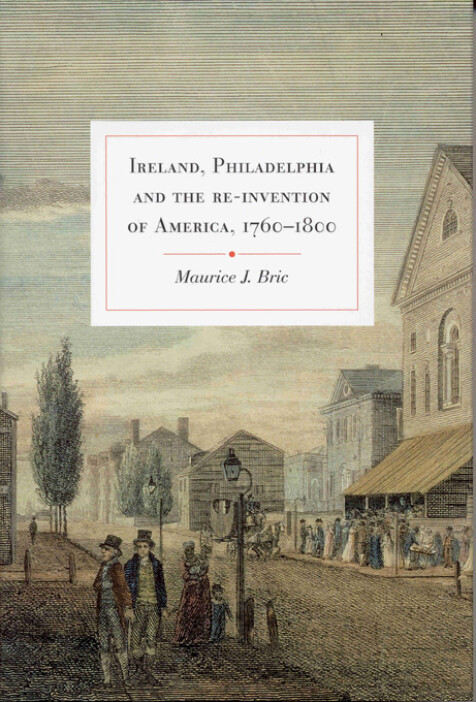Ireland, Philadelphia and the re-invention of America, 1760–1800
Maurice Bric
While the American Revolution led to the establishment of the United States as an independent republic, it also inaugurated a debate as to what the character and structures of that republic should be. Among the issues to be agreed on were the terms on which “the people” voted and the offices of government secured. Would it de-stabilise the new republic if the “awakened democracy” were allowed too much discretion over those who had been accustomed to legislate and rule for so much of the colonial period? How should the new republic regard its relationships with Britain and Ireland, now that America had broken out from the common world of the British empire, of which they were all part for so long? Such questions of definition, and by extension, identity, were not easy to address. However, the perceptions and profile of immigrants from Ireland provide one way in which we can address some of these issues. These people were at once new additions to the political community as well as people who carried many of their Old World attitudes with them across the ocean. Thus, in debating the extent to which such immigrants could become “truly American,” Americans were also discussing what it meant to be American at a time when they were re-inventing many aspects of their political and social culture.
Winner of the 2009 NUI Irish Historical Research Prize. This prize is offered in alternate years, for the best work of Irish historical research, published for the first time by any student or graduate of the National University of Ireland.
Maurice Bric is Senior Lecturer in History at University College, Dublin, and Chairperson of the Irish Research Council for the Humanities and Social Sciences. He has written and lectured extensively on the history and culture of the eighteenth-century Atlantic world as well as on public policy on research. He is also a member of the Royal Irish Academy.

